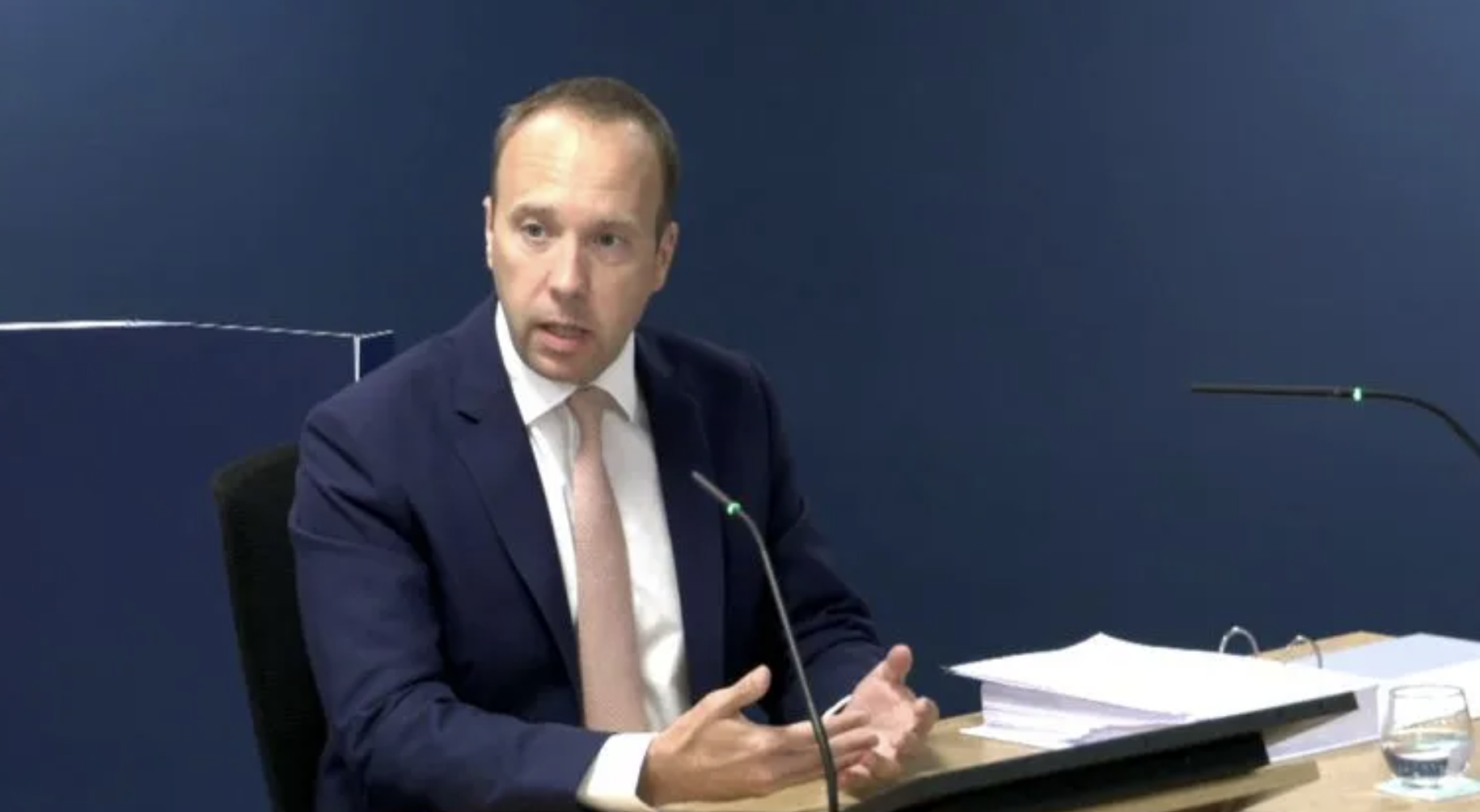This week the UK Covid Inquiry was again reminded of one of the central ironies of the Covid years: politicians who made the rules broke the rules. Yet a second great irony has also developed: these same politicians believe lockdown rules should have been implemented earlier. Both obfuscate a central problem.
Such rule-breaking has been a regular feature of Covid decision-makers from Boris Johnson’s Partygate fiasco to Dominic Cummings’ infamous road trip to Neil Ferguson’s encounters with a woman, outside his household, in an ‘open marriage’. This week it was the turn of Matt Hancock, the ex-health secretary, who admitted that his affair with an aide in 2021, in violation of his own social distancing rules, may have affected public confidence.
Hancock resigned in June 2021 after footage emerged of what he has previously called his “human error” of “falling in love”. Michael Gove was also questioned this week for exempting hunting from the ‘rule of six’ after WhatsApp messages suggested it was for political brownie points.
Yet the media framing and questioning by the inquiry barristers appear more concerned with provoking apologies and fake remorse. Hancock, Gove, Johnson, Cummings, Ferguson and many more have done so publicly.
The ‘unequivocal’ rules to social behaviour mandated by the government touched every aspect of British society: sex, worship, protest, playing, working, schooling, socialising, attending funerals and marriages, elderly care visits — the list goes on. Over 100 new laws were passed without any meaningful parliamentary involvement over 763 days, leading to over 100,000 criminal offences.
Human rights barrister Adam Wagner has described the alarming centralisation of power at Downing Street as a “Covid politburo.” This group quarantined the whole country three times and micromanaged British society in an ever-changing patchwork of intrusive rules and safety guidelines. Despite increases in authoritarian attitudes among the public, many appear immune to questioning this unprecedented infringements in basic civil liberties.
Yet more alarming is the wholly unsatisfactory antidote that easily absolves the political class of responsibility: early lockdown. This ‘lockdown doctrine’ was continued this week by Matt Hancock, who claimed an earlier lockdown in March could have prevented 90% of deaths in the first wave, or more than 30,000 lives, and tougher action in autumn could have prevented the closure of schools in early 2021. This is hard to believe, although others such as Michael Gove broadly agreed: the country was “too slow” to call lockdown. New evidence also emerged, from the diary of Sir Patrick Vallence, that Boris Johnson was calling for greater fines in autumn 2020: “We need a lot more punishments and a lot more closing down,” he reportedly stated.
In this account, those responsible for making the rules that they broke cannot publicly reject the rules. That would mean the national sacrifice was for naught. Rule-breaking does come with political costs. But these can be paid with reasonable public apology for “being human”.
But this leaves the more important questions aside: how truly effective and necessary was the Covid rule regime? And that is exactly the line of questioning many in the Conservative party political class want to avoid.










Join the discussion
Join like minded readers that support our journalism by becoming a paid subscriber
To join the discussion in the comments, become a paid subscriber.
Join like minded readers that support our journalism, read unlimited articles and enjoy other subscriber-only benefits.
Subscribe